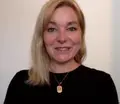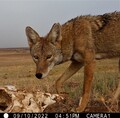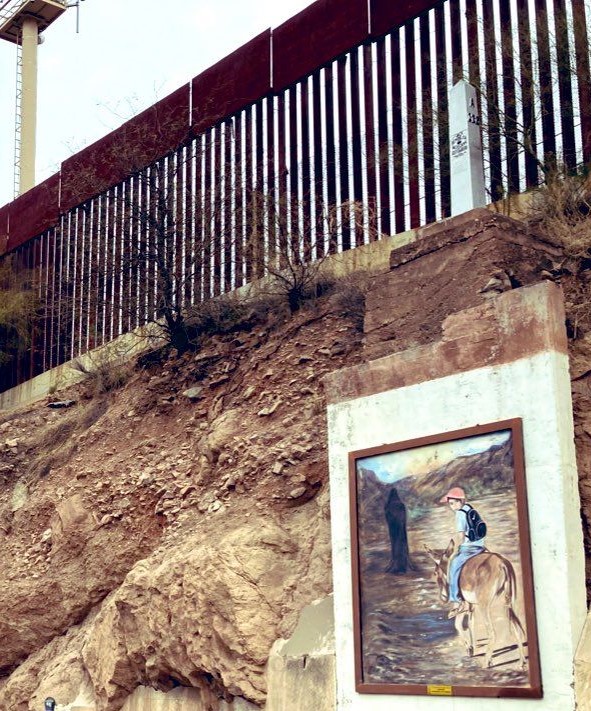Playlist: Priyanka Shankar's PEACE TALKS RADIO episodes
Compiled By: Good Radio Shows, Inc.

Priyanka Shankar has been reporting for PEACE TALKS RADIO since January 2022.
Prianka is an independent journalist from India, currently based in Belgium. She mainly covers print and radio stories on migration, human rights and Europe's relations with Asia.
Her work can be seen in Al Jazeera English, Deutsche Welle, The South China Morning Post, BBC Travel and others.
Outside a newsroom, you will find her rambling along mountains or scuba diving. Dance, music and exploring different forms of street art are other passions.
Flipping Extremists To Bolster Peace
From Good Radio Shows, Inc. | Part of the Peace Talks Radio: Weekly Hour Long Episodes series | 58:59
A threat of both international and domestic terrorism has been a constant in our world for decades now. Radicalization of individuals to practice such terrorism has been identified as one of the key reasons behind these attacks forcing governments around the world to focus on countering terrorism through deradicalization. On this PEACE TALKS RADIO episode, correspondent Priyanka Shankar talks to our guests about what drives people into joining terrorist groups and how counter-terrorism efforts are trying to flip extremists to bolster peace. Why should we care about these efforts, and what role, if any, can WE play in such efforts?

A threat of both international and domestic terrorism has been a constant in our world for decades now. Radicalization of individuals to practice such terrorism has been identified as one of the key reasons behind these attacks forcing governments around the world to focus on countering terrorism through deradicalization. On this PEACE TALKS RADIO episode, correspondent Priyanka Shankar talks to our guests about what drives people into joining terrorist groups and how counter-terrorism efforts are trying to flip extremists to bolster peace. Why should we care about these efforts, and what role, if any, can WE play in such efforts?
We will hear from Pieter Van Ostaeyen, a Belgium-based independent analyst on jihadist groups worldwide. Also, Elizabeth Pearson, a Lecturer in Criminology with the Conflict, Violence and Terrorism Research Centre at Royal Holloway, University of London. And Mubin Shaikh, a former extremist, who will help us understand how he helps young people get deradicalized.
Seeking Peaceful Coexistence with Wildlife
From Good Radio Shows, Inc. | Part of the Peace Talks Radio: Weekly Hour Long Episodes series | 58:59
This PEACE TALKS RADIO episode seeks to highlight solutions which may help humans and wildlife coexist more peacefully. It highlights the reasons behind why conflicts take place and how policymakers are addressing it. It also addresses how each of us can handle conflicts with the animals around us every day whether it is a mosquito or a big bear.

This episode seeks to highlight solutions which help humans and wildlife coexist. It highlights the reasons behind why conflicts take place and how policymakers are addressing it. It also addresses how each of us can handle conflicts with the animals around us every day whether it is a small mosquito or a big bear.
Our first Gerard Martin is a conservationist in India who focuses on trying to educate people, and young children on how to coexist with snakes. Death due to snake bites is a very big problem in India, which also gives a negative perception of the animal. But Gerry is trying to change that.
We will also talk to Petros Chrysafis, a wildlife conservationist based in California, focusing on mitigating human-wildlife conflicts in the region. He tells us more about how he has established predator monitoring tools and non-lethal deterrent measures to ensure livestock and wildlife coexist safely.
Lastly, we will hear from Paula Pebsworth, a primatologist who has worked on mitigating human-wildlife conflict between primates and humans in many parts of the world and is currently based in Texas. Paula’s focus is to find solutions for humans and wild animals to coexist and also addresses the language and narratives policymakers, the media, researchers, conservationists etc should use while talking about human-wildlife conflicts. Our correspondent is Priyanka Shankar.
Making Peace With Migration
From Good Radio Shows, Inc. | Part of the Peace Talks Radio: Weekly Hour Long Episodes series | 58:54
Every time a group of people line up along the external borders of a country, debates heat up among government leaders with respect to migration and asylum procedures. On this episode of PEACE TALKS RADIO, correspondent Priyanka Shankar explores why migration and asylum are contentious and how a country can make peace with migration and asylum. Focusing on how the European Union has been dealing with migration and asylum, we talk to Petra Molnar, a lawyer and anthropologist, who also gives the gist of how European countries have been handling the migration crisis induced by the war in Ukraine. Other guests are Bram Frouws, the head of the research platform Mixed Migration Centre (MMC) in Geneva. and .Vasco Malta, the head of the UN’s migration agency in Portugal, to understand how Portugal getting better marks on their immigration systems from human rights watchdogs.
- Playing
- Making Peace With Migration
- From
- Good Radio Shows, Inc.

Every time a group of people line up along the external borders of a country, debates heat up among government leaders with respect to migration and asylum procedures.
Over the past few years many people from countries like Afghanistan, Syria, Iraq, Eritrea, the DRC, Ukraine and others, have fled conflict in their regions in search of refuge. Taking treacherous journeys, many of them aim to apply for asylum and live in Europe. But for leaders of the European Union, ghosts of the 2015 European refugee crisis, continues to haunt them, making them delay proactive responses on asylum for people seeking refuge.
Despite having a common asylum system, according to human rights and migration experts, the EU has been externalizing migration management by depending on third countries like Turkey and Libya. Migrants have also become victims of violent pushbacks with the EU fortifying its borders through border patrols and funding the construction of walls.
Such border surveillance has also become common in the US with the country delaying asylum to people from Central America.
In February 2022 when the Russian Federation’s invaded Ukraine and displaced millions of people, migration policies in many European countries transformed. Leaders who had previously embraced an anti-refugee narrative, now began displaying solidarity and embraced open borders for people from Ukraine. While migration experts were critical about how this war displayed Europe’s two-tier migration policies—open arms for one group of people and all sorts of borders and surveillance for another—they also highlighted how this war had exposed how countries can make peace with migration and asylum.
While politics around the world continues to play an integral role in migration and asylum procedures, how could world leaders find sustainable solutions to help displaced people equally, irrespective of their backgrounds?
On this episode correspondent Priyanka Shankar explores why migration and asylum are contentious and how a country can make peace with migration and asylum. Focusing on how the European Union has been dealing with migration and asylum, we talk to Petra Molnar, a lawyer and anthropologist, trying to understand the impact of surveillance technologies on people on the move. Petra also gives the gist of how European countries have been handling the migration crisis induced by the war in Ukraine.
We will also talk to Bram Frouws, . He has been analyzing migration movements around the world. He’s also been critical of how the language used to discuss the movement of people in the media and amidst political groups, often fuels war-like narratives.
Lastly, we hear from Vasco Malta, the head of the UN’s migration agency (IOM) in Portugal, to understand how Portugal is helping people seeking asylum and helping them integrate in their new home and getting better marks on their immigration systems from human rights watchdogs. Mr. Malta also explains how countries might better tackle the polarizing aspects of migration along borders.